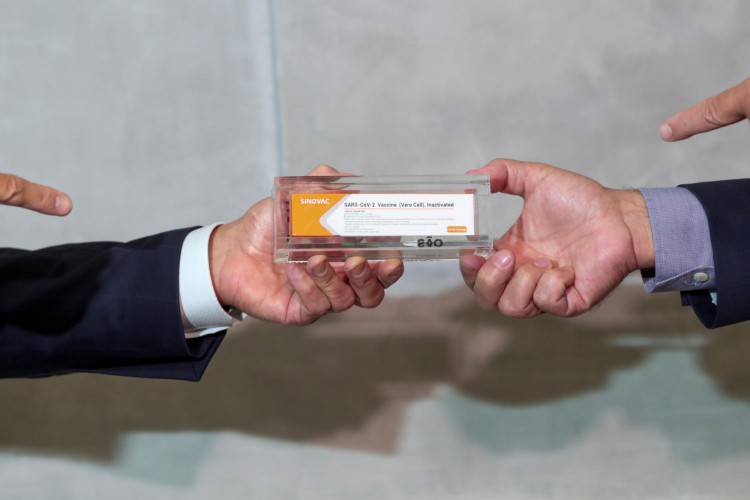China's Sinovac is up for review for a potential emergency use listing by the World Health Organization (WHO), following the review of another Chinese-made vaccine, Sinopharm.
Results to Come This Week
While Sinopharm was reviewed by the WHO first, the results of both vaccine reviews will be released this week, the organization said.
The news came as several Southeast Asian countries such as the Philippines and Indonesia have expressed continuous interest in the Chinese-developed coronavirus vaccine.
While a growing number of nations have already started using Sinovac in their vaccination programs, a WHO emergency use listing could further boost the vaccine's popularity.
Philippines: More Than 1.5 Million Doses Administered
In the Philippines, the latest government data indicated that around 1.6 million doses of Sinovac have been administered to the public.
The first shipments arrived in the country on March 29 and April 11. Last week, another 500,000 doses arrived through a Philippine Airlines flight in the latest government-purchased order.
The Southeast Asian country has been cooperating with China since the pandemic started, despite ongoing territorial disputes in the South China Sea.
As vaccination drives around the country continue, the Philippine National Police (PNP) confirmed on Friday that a 50-year-old police lieutenant who received his first shot of Sinovac passed away.
The said cop was among the frontline workers who were listed as vaccine priorities due to comorbidities. He received his first dose on March 31 and a week later, he experienced COVID-19 symptoms. He tested positive of the virus and was hospitalized.
Despite the latest death in the PNP, the latest data revealed that majority of the entire PNP force got inoculated with Sinovac. 6,759 of 12,109 PNP forces had Sinovac, while 1,995 got AstraZeneca shots.
Indonesia: Millions of Doses to Arrive
Indonesia and China are also in dispute over a certain area in the South China Sea, but the former continues to cooperate with Beijing for additional Sinovac doses.
Last week, Indonesian health minister Budi Gunadi Sadikin said there are around "10 million to 15 million doses for April and May" that are due to arrive to boost the vaccination program.
Sadikin said the shots will help speed up Indonesia's vaccination rate, which was delayed due to vaccine shortages and other issues related to limited manufacturing capacity.
So far, at least 18 million people have been vaccinated in Indonesia.
Sinovac Efficacy Rate
Hesitance over the use of China's Sinovac emerged after Brazilian clinical trials earlier this year found the vaccine to have a 50.4 percent efficacy rate.
The initial results, which did not include information from patients with "very mild infections" revealed that Sinovac had a 78 percent efficacy on patients with "mild-to-severe" symptoms.
However, once the missing data was included, the efficacy rate dropped to 50.4 percent, the researchers at Butantan Institute revealed.
On the other hand, Butantan researchers said Sinovac still has a 78 percent efficacy rate in preventing mild symptoms.
Meanwhile in Chile, researchers found that the vaccine was 67 percent effective in preventing symptomatic infection, 80 percent effective in preventing COVID-19-related deaths, and 85 percent effective in preventing coronavirus-linked hospitalizations.
The Hacettepe University in Ankara, Turkey, also found last month that the Sinovac vaccine was 83.5 percent effective against the novel coronavirus and was 100 percent effective in preventing hospitalizations.





